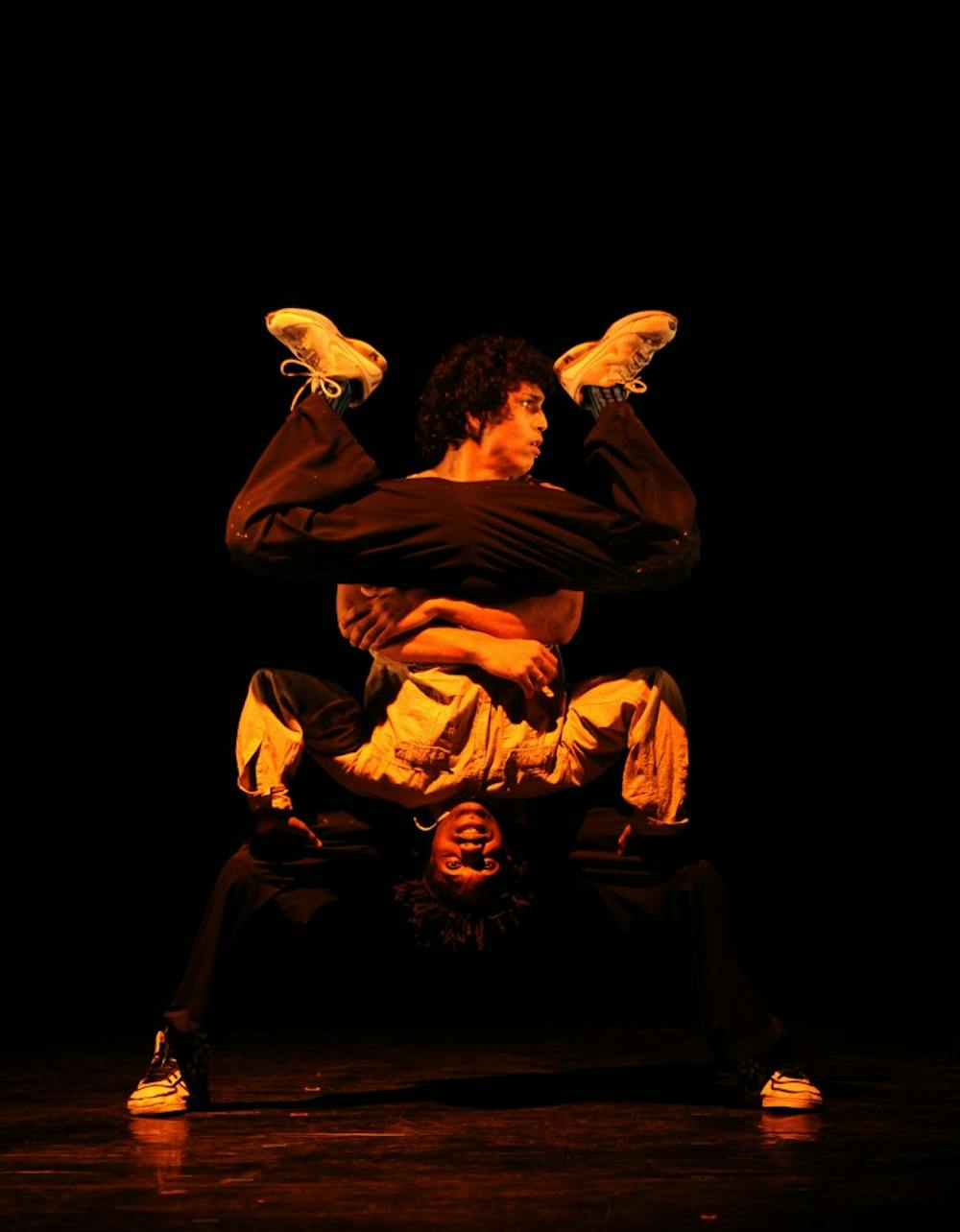Compagnie Kafig
Wednesday at 7:30 p.m.
?????
Eleven Brazilian street-dancers presented a high-energy blend of hip-hop, martial arts, circus, and street dance in Carolina Performing Arts’s double bill performance of Correria and AGWA at Memorial Hall Wednesday night.
In Correria, the dancers of Compagnie Kafig thematically explore the act of running. They run in every manner imaginable, plus some ways you wouldn’t think of: incredibly fast, excruciatingly slow, on the ground, in the air, upside down, sideways, on their knees, and even with their fingers. The piece features a motif of racing and catching up — to others and to one’s self. This raises questions about the frantic pace of modern life. This theme is most evident when a soloist dons a white button-down and runs in front of a projection of himself, trying and failing to keep pace as the image speeds up and eventually runs straight into the sky.
Much of Correria is formed around deliberate juxtapositions of extreme tempos. The piece opens with a rapid clicking noise coupled with a slow fading up of the lights, revealing the dancers’ feet running upside down in the air at increasing speeds. One of the most visually striking segments of the dance featured a soloist dancing frantically in place in a spotlight, while other performers ran in slow motion beside him. Hard sidelight and intense music made this the most dramatic section of the piece.
AGWA is thematically driven by another deceptively simple motif: water. From the beginning, the stage is decorated with clear cups of water arranged in different formations. Dancers weave in and out, backflipping and break dancing their way through a complex maze of cups with extreme precision. The choreography is exceptionally fluid and evocative of water in all of its various forms, from a gentle stream to a pounding rainstorm. The climax of the piece is a modern-day rain dance featuring stacked cups, water flinging, and a fifteen-plus-second head spin that left the crowd cheering for more.
Between the two pieces, the dancers displayed a stunning level of versatility in both physical ability and tone. In Correria, dancers were often showcased as soloists and in pairs, and even in large groups their asynchronous style called attention to their individuality. AGWA was a more ensemble-oriented piece, with more dancers onstage at a time and synchronous group movement. Both dances expertly displayed a wide range of moods, from whimsical to poignant, all performed with intense energy and passion. The music chosen was as diverse as the dancers, spanning genres from samba and bossa nova to opera and electronic.
Both pieces were highly interactive, with dancers looking to the audience for reactions and calling attention to humorous moments. By the end of the show, the crowd was on its feet clapping along to the beat. Compagnie Kafig closed out their final UNC performance to not one, but two standing ovations, with choreographer Mourad Merzouki taking a bow and—in an interesting role reversal—snapping a picture of the audience.
arts@dailytarheel.com
To get the day's news and headlines in your inbox each morning, sign up for our email newsletters.




